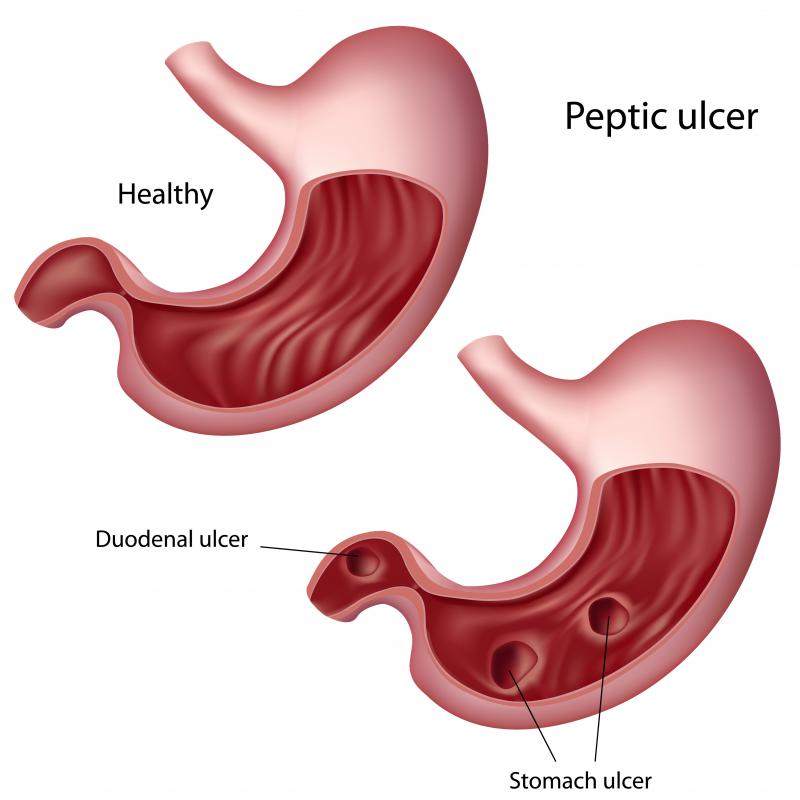At WiseGEEK, we're committed to delivering accurate, trustworthy information. Our expert-authored content is rigorously fact-checked and sourced from credible authorities. Discover how we uphold the highest standards in providing you with reliable knowledge.
What is the Connection Between Ulcers and Cancer?
Peptic ulcers are round sores in the stomach that occur after stomach acid has eaten through part of the stomach lining. Stomach cancer, also known as gastric cancer, is a disease that can manifest in different parts of a person's stomach. Both ulcers and cancer are linked to a type of bacteria called Helicobacter pylori, or H. pylori for short.
H. pylori is a unique type of bacteria. Usually, the stomach's acidic environment prevents bacteria from growing. In the case of H. pylori, however, the bacterium creates ammonia in the stomach, which neutralizes stomach acid and allows bacteria to survive. White blood cells that try to attack the infection are easily killed, and they release nutrients that allow H. pylori to thrive.

An untreated H. pylori infection may lead to a peptic ulcer. There are two types of these stomach ulcers: duodendal and gastric ulcers. Duodendal ulcers can be found in the beginning of the small intestine, and are more common than gastric ulcers, which appear in the curved upper area of the stomach.
Some symptoms of stomach ulcers include heartburn, a gnawing or empty feeling in the stomach, hunger, and mild soreness below the breastbone. Pain may be relieved by eating, drinking milk, or taking antacids. Ulcers typically heal and recur over time.

Recurring stomach ulcers may lead to severe complications. For example, gastric ulcers may cause the tissues in the small intestine to swell. This blocks food from leaving the stomach, which may lead to nausea, bloating, and vomiting. Some peptic ulcers may rupture or bleed.
Stomach cancer may occur in any area of the stomach, although it usually begins in the stomach's inner layer. Symptoms are often mild or non-existent in the early stages of the disease. As the cancer grows, it typically leads to symptoms such as stomach pain, trouble swallowing, nausea, vomiting, weight loss, bloating, and bloody vomit or stools.

The presence of H. pylori is strongly linked to both stomach ulcers and cancer. Not everyone who is infected by H. pylori will develop an ulcer or cancer, but the risk is higher than it is for non-infected peers. Other risk factors for ulcers and cancer include smoking, obesity, poor diet, lack of exercise, and a family history of ulcers and cancer.

Ulcers may be treated using antibiotics. Other medications may be prescribed to reduce or neutralize stomach acid. Antacids may temporarily relieve symptoms, but they cannot heal ulcers. Stomach cancer is typically treated with chemotherapy and radiation.
AS FEATURED ON:
AS FEATURED ON:
















Discuss this Article
Post your comments